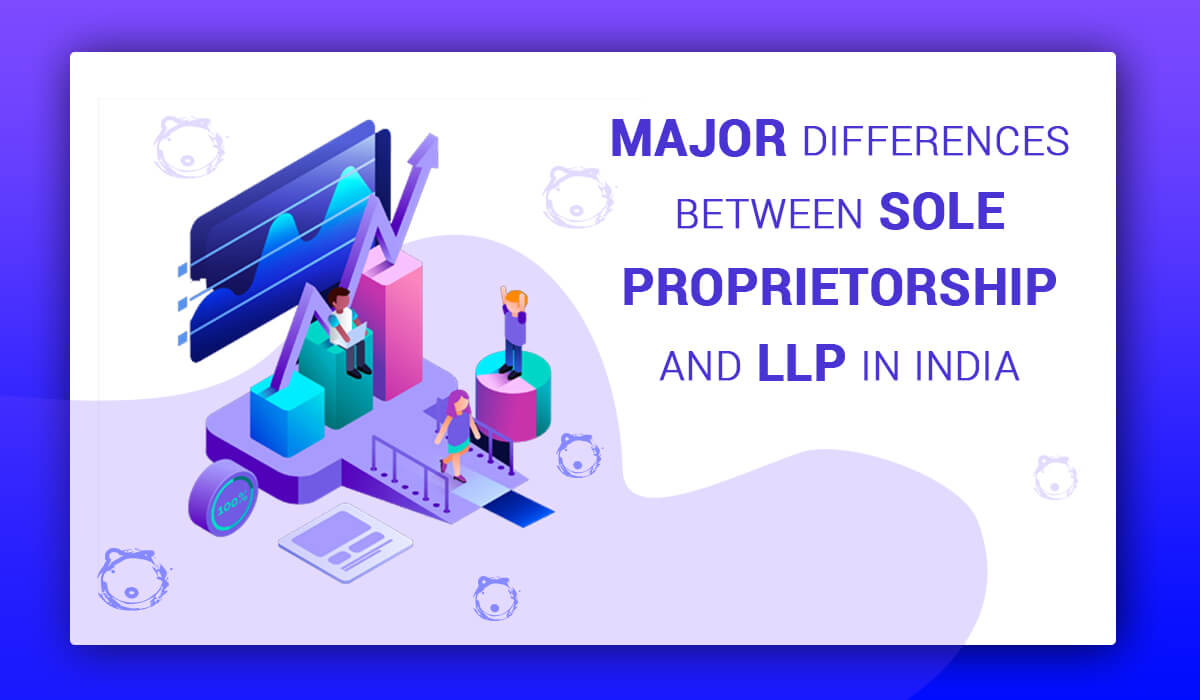
User Intent
Entrepreneurs and small business owners often struggle to choose between a Limited Liability Partnership (LLP) and a Sole Proprietorship. Understanding their differences, advantages, and limitations is crucial for making an informed decision. This article provides an in-depth comparison to help you select the best business structure for your needs.
Introduction
When starting a business, choosing the right legal structure is one of the most critical decisions. Two popular options are LLP (Limited Liability Partnership) and Sole Proprietorship. Both have distinct features, benefits, and drawbacks. While a Sole Proprietorship is simple and easy to manage, an LLP provides a structured and legally secure framework.
In this article, we will break down the key aspects of both these business types, their applications, benefits, limitations, and a comparative table to help you make an informed choice.
Definition
- Limited Liability Partnership (LLP): An LLP is a separate legal entity that offers limited liability protection to its partners while allowing operational flexibility. Each partner’s liability is limited to their agreed contribution.
- Sole Proprietorship: A sole proprietorship is a business owned and operated by a single individual. The owner is personally responsible for all debts and liabilities, making it the simplest business structure.
visit at : https://www.mca.gov.in
Application
LLP
- Best suited for businesses with multiple owners looking for liability protection.
- Commonly used by law firms, accounting firms, consultancies, and professional service providers.
- Requires registration with government authorities.
- Operates under a legal agreement defining the roles and responsibilities of partners.
Sole Proprietorship
- Ideal for freelancers, small traders, independent professionals, and local businesses.
- Requires minimal compliance and registration.
- Fully controlled by the owner.
- Profits are taxed as personal income.
Benefits
Advantages of LLP
Limited Liability – Partners are not personally liable for business debts beyond their capital contribution.
Legal Recognition – LLPs are recognized as separate legal entities, providing better credibility.
Perpetual Succession – The business continues even if partners change.
Flexibility in Operations – Partners can define management roles without strict compliance.
Tax Benefits – LLPs enjoy tax benefits like reduced corporate tax rates in some jurisdictions.
Advantages of Sole Proprietorship
Easy Setup – Minimal documentation and regulatory requirements.
Full Control – The owner has complete decision-making power.
Direct Profit – No need to share profits with partners.
Less Compliance – Fewer legal formalities compared to LLPs.
Easy Dissolution – A sole proprietorship can be dissolved quickly without complex legal procedures.
Limitations
Disadvantages of LLP
Registration Cost & Compliance – Higher setup cost and legal formalities compared to a sole proprietorship.
Profit Sharing – Earnings must be divided among partners.
Limited Flexibility – Certain legal and operational requirements need to be followed.
Disadvantages of Sole Proprietorship
Unlimited Liability – The owner is personally responsible for all debts.
Limited Growth – Raising capital is difficult as investors prefer structured entities.
Business Continuity Risk – The business may cease to exist if the owner passes away.
Comparative Table
| Feature | LLP | Sole Proprietorship |
|---|---|---|
| Legal Identity | Separate legal entity | Not a separate entity |
| Liability | Limited to capital contribution | Unlimited personal liability |
| Registration | Mandatory | Not mandatory |
| Management | Managed by partners | Managed by owner |
| Taxation | Taxed as a partnership or company | Taxed as personal income |
| Continuity | Perpetual succession | Ends with the owner |
| Compliance | Moderate to high | Low |
| Ease of Raising Funds | Easier (partners/investors) | Difficult (self-funded) |
Conclusion
Both LLP and Sole Proprietorship have their pros and cons. If you prefer simplicity, full control, and minimal compliance, a sole proprietorship is the best option. However, if you need liability protection, credibility, and long-term business continuity, an LLP is the better choice.
Before deciding, consider your business goals, risk tolerance, and future expansion plans. Consulting a legal expert can also help you make an informed decision.
FAQs
Q1. Which is better for a startup: LLP or Sole Proprietorship? A: If you plan to scale your business and need liability protection, go for an LLP. For small-scale businesses with minimal risks, a sole proprietorship is sufficient.
Q2. Can a sole proprietorship be converted into an LLP? A: Yes, a sole proprietorship can be converted into an LLP by following the legal registration process.
Q3. Does an LLP require an annual audit? A: In many countries, LLPs are required to undergo an audit if their revenue exceeds a certain limit.
Q4. What are the tax implications of LLP vs. Sole Proprietorship? A: Sole proprietors pay personal income tax, while LLPs may have tax benefits, depending on local laws.
Q5. Which is easier to shut down, LLP or Sole Proprietorship? A: A sole proprietorship is easier to close since it does not require formal winding-up procedures, unlike an LLP.

